1. Therapeutic Optimism
1.1. Flexible for each individual
1.1.1. Building a unique therapeutic relationship
1.1.2. Finding a mentor
1.1.2.1. Promote optimism and self-esteem
1.1.2.2. Aspiring to be a better person but not putting down who they are now
1.1.3. Creative and flexible approach
1.1.3.1. Willing to modify and adapt plans for recovery
1.1.3.1.1. Openmindedness
1.1.4. Sensitive to the client's life, choices and viewpoint
1.2. Help facilitate resilience
1.2.1. Understand that mental illness is often a relapsing condition
1.2.1.1. Learn to overcome and work through difficult events in life
2. Local Support Services
2.1. Anonymous Support
2.1.1. Beyond Blue
2.1.1.1. Website : www.beyondblue.org.au
2.1.1.2. Phone : 1300 22 4636 (hotline available 24/7)
2.1.2. Suicide Hotline
2.1.2.1. 13 11 44
2.2. Personal Support
2.2.1. Head Space
2.2.1.1. 1800 063 267
2.2.1.1.1. 2 Peachey Rd, Edinburgh North SA 5113
2.2.2. School Counsellor
2.2.2.1. Access varies on specific school in attending
2.2.3. CAMHS
2.2.3.1. 836 14 800
2.2.3.2. 72 King William Road, North Adelaide
2.3. GP visit
2.3.1. Evanston Park Surgery
2.3.1.1. 85 224 933
2.3.1.2. 18-20 Alexander Avenue, Evanston Park SA 5116
2.3.1.3. Further referral to dietician
2.3.1.3.1. STARPLEX wellness and rehabilitation : 852 38 729
2.3.1.3.2. 18-20 Alexander Ave, Evanston Park SA 5116
2.3.2. Gawler GP after hours access
2.3.2.1. Further referral to psychiatrist/psychologist
2.3.2.2. 85 223 877
2.3.2.2.1. 2/75 Murray St, Gawler SA 5118
3. Impacts of Mental Illness
3.1. Experienced by the individual
3.1.1. Falling behind in studies (at school/university)
3.1.1.1. Academic results suffer
3.1.1.1.1. Potentially leaving school/uni
3.1.2. Poor self esteem
3.1.3. Lack of motivation
3.1.3.1. Loss of interest in prior hobbies
3.1.3.1.1. Stop attending sporting commitments/social events
3.1.4. Relationships begin to suffer
3.1.4.1. Loss of contact with friends/family as the individual begins to isolate him/herself
3.1.5. Unemployment
3.1.5.1. Poor financial status
3.1.5.1.1. Poor health outcomes
3.1.6. Lack of sleep
3.1.6.1. Poor mental state
3.2. Experienced by the family
3.2.1. Requires long-term management
3.2.2. Often the family experience a variation of emotions in response to a family member being diagnosed
3.2.2.1. Stress
3.2.2.2. Confusion
3.2.2.3. Frustration
3.2.2.4. Anger
3.2.3. Fear
3.2.3.1. Often for their family member's well-being
3.2.3.1.1. Depending on the illness, potentially fear for their own well-being
3.3. Experienced by the carer
3.3.1. Conflicting emotions as they deal with the client's progressing illness
3.3.1.1. Frustration
3.3.1.2. Under a lot of pressure
3.3.1.3. Sympathy
3.3.2. Overwhelming responsibilities
3.3.2.1. Constant worry
4. Recovery Model
4.1. Moving forward in order to achieve well-being and a satisfying life
4.1.1. Treatment
4.1.1.1. Includes professional and family support
4.1.1.1.1. Working collaboratively with consumers
4.1.1.1.2. All parties must demonstrate hope and optimism
4.1.1.2. Reconnecting with social life and meaningful activities
4.1.1.2.1. Employment
4.1.1.2.2. Volunteer work
4.1.1.2.3. Sporting activities
4.1.1.3. Is an active process
4.1.1.4. Improving physical health
4.1.2. Hospitalisation
4.1.2.1. In severe cases hospitalisation is required in order to make the initial step of recovery
4.1.2.1.1. Stabilisation of psychiatric symptoms
4.1.2.1.2. Medication management
4.1.3. Improving physical health
4.1.3.1. Healthy diet
4.1.3.2. Regular exercise
4.1.3.2.1. Yoga
4.1.3.2.2. Joining a sporting team

